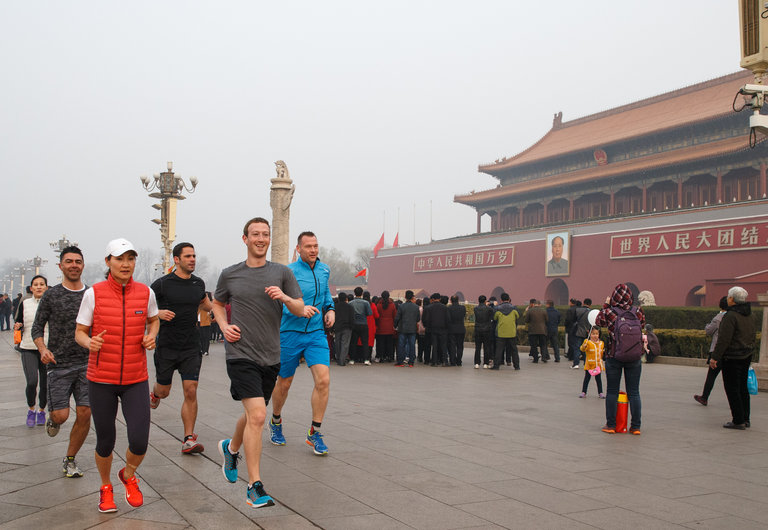With all the new amendments in China after the crackdown on Internet services by the government, all major VPNs which circumvented the country’s Great Firewall were asked to be pulled out. In the process, the event highlighted the interests of Facebook, Apple Google and other companies, which still have their eye on the nearly 700 million Internet users in the PRC.
It appears that Facebook hasn’t given up, and is trying to find ways to bring its presence into the country, be it directly under its brand, or indirectly. As part of this effort, Facebook has identified ways to sneak past the country’s Great Firewall. Recent news reports are emerging that Facebook has silently released an app in China called “Colorful Balloons” through Youge Internet Technology.
The Colorful Balloons app, a photo-sharing app, is similar to Facebook Moments in look and feel, but without its branding. This could be a strategic move to break into China without using its name, and ensuring that country’s new policies are met, similar to homegrown apps like WeChat.
Facebook’s response to the New York Times was very strategic: “We have long said that we are interested in China, and are spending time understanding and learning more about the country in different ways.”
The comment does not reveal any information on the new app released, and it is still unclear to what extent Facebook was involved in building the app. But, given the look and feel of the Colorful Balloons app, it sends a clear message that Facebook has played a substantial role.
The Colorful Balloons app is designed to collate photos from a smartphone’s photo album and later allow the user to share them online. The app was released by a local company called Youge Internet Technology in Beijing, without no mention of Facebook’s involvement.
Colorful Balloons was approved by Facebook in May, according to a source who preferred to be anonymous as the information is politically sensitive.
In 2009, China banned Facebook, and Instagram followed in 2014. Recently, WhatsApp, the hugely popular messaging app also owned by Facebook, was partially blocked.
Given that the new app has been released by a local entity, information is still murky on how the government might react to it. But if there’s an inkling among the powers that rule that Facebook is somehow involved in this, it may not bode well for any possibility of Facebook ever re-entering China.
Thanks for visiting. Please support 1redDrop on social media: Facebook | Twitter



